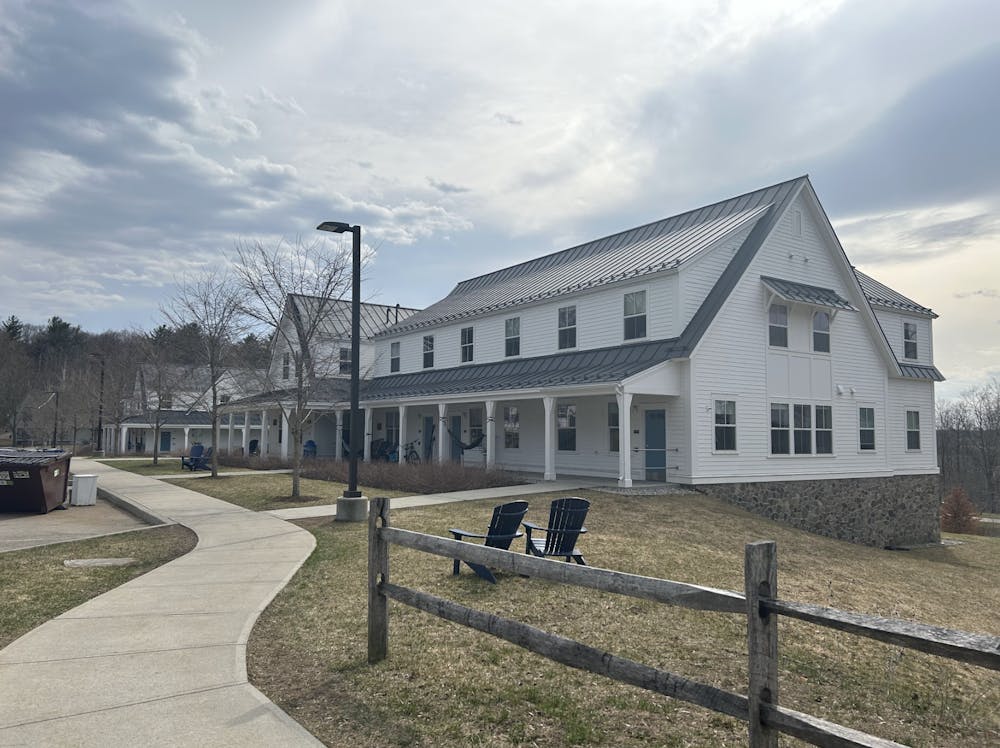The recent townhouse lottery has left many super senior Febs disappointed. Unlucky lottery times and the lack of priority draw for older students are a setup for disaster.
The current housing lottery groups the rising super senior Febs with the incredibly large rising senior and senior Feb classes. This current system completely disregards previous understandings of seniority and puts super seniors at a disadvantage when it comes to getting a housing option with a common space. Rather, they must compete for spaces with the younger senior class during their very last semester.
This is difficult to accept for many super seniors, who wish that the seniority principle that applies to other systems at Middlebury applied to housing, as well. Super senior Febs enroll in classes at earlier times than seniors due to their credits; they graduate earlier; and they have simply spent more time at this college. A lack of recognition of this in the housing draw leaves super seniors nervous about what options might be available in the on-campus housing lottery.
Due to these concerns, many super seniors are turning to off-campus housing options. Going off-campus typically guarantees that one may live with their chosen roommates in an apartment or house with a common space. However, in reality, off-campus housing is hard to come by. Many off-campus housing options are informally or formally claimed years or months in advance, and others are passed down through networks of friends. Entering this web of connections takes months, or even years, of planning and networking.
Even when off-campus housing is a viable option, it is not always desirable. Off-campus living is not for everyone — it might feel isolating or require transportation to reach campus. Often, students express that they would rather live in a suite on campus, but are wary of their chances. They would rather cut their losses with the on-campus lottery and pay the price of living off-campus.
Yet, even when off-campus housing is utilized, it comes with a whole slew of other related issues. The current student-landlord relationship is short-lived and often tenuous; the semester-by-semester renting does not provide opportunities for fostering close relationships between students and townspeople. This is further compounded by, most often, super seniors being a large portion of the student tenants and only living off-campus for one semester. This does truly nothing to amend the shaky relations between students and townspeople, an issue with its own history.
If the on-campus lottery were adjusted to give super seniors a priority draw, this class wouldn’t feel as often like they “needed” off-campus housing to have common spaces and roommate guarantees for their last semester. Then, off-campus housing could become an open option for more upperclassmen to consider. With this shift, we could see longer leases in off-campus houses or apartments, thus allowing beneficial student-landlord relationships to grow. This could help ease tensions that were raised following the noise-ordinance implementation and complaints of off-campus student behavior from community members.
The scramble for housing and the stresses associated with the lottery are almost inevitable with the current state of over-enrollment. However, the fact that these stresses are borne by the oldest students at the school feels especially upsetting as they head into their last semester. Concerns of living in a row of singles or doubles along a dormitory hall feels like it could dictate their whole social life during their last semester. Various options of shared suite living or dormitory style rooms should be abundant for the most senior of students, not hard to come by.

Libby Scaperotta ’24 (she/her) is the Opinions Senior Editor.
Libby is an Environmental Policy major and Geography minor. She enjoys photography, travel, and spending time outside with friends. Libby also works as a layout design editor for Middlebury Geographic.


![Copy of Editorial [Susanna] (3) (1) (2) (1).JPG](https://snworksceo.imgix.net/mbc/11c1e285-1b2c-4ee9-9d20-4a2f24335290.sized-1000x1000.JPG?w=1500&ar=16%3A9&fit=crop&crop=faces&facepad=3&auto=format)

